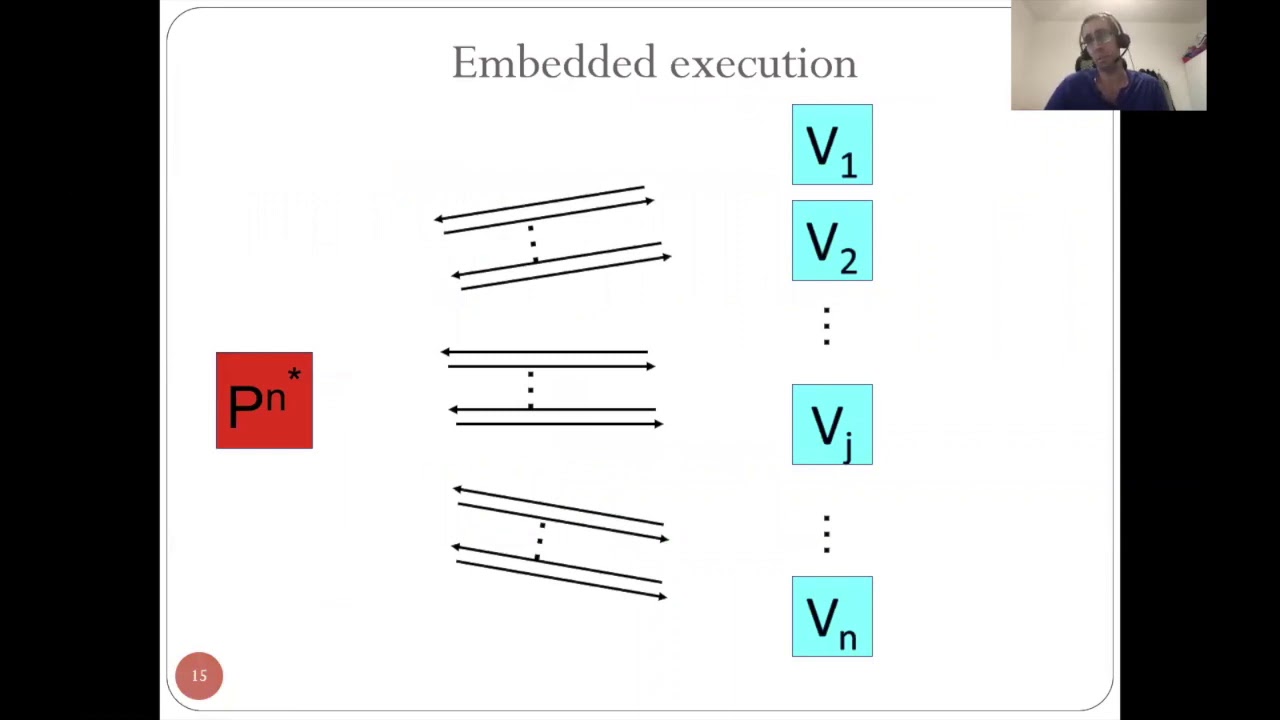Welcome to the resource topic for 2019/393
Title:
A Tight Parallel Repetition Theorem for Partially Simulatable Interactive Arguments via Smooth KL-Divergence
Authors: Itay Berman, Iftach Haitner, Eliad Tsfadia
Abstract:Hardness amplification is a central problem in the study of interactive protocols. While “natural” parallel repetition transformation is known to reduce the soundness error of some special cases of interactive arguments: three-message protocols (Bellare, Impagliazzo, and Naor [FOCS '97]) and public-coin protocols (Hastad, Pass, Wikstrom, and Pietrzak [TCC '10], Chung and Lu [TCC '10] and Chung and Pass [TCC '15]), it fails to do so in the general case (the above Bellare et al.; also Pietrzak and Wikstrom [TCC '07]). The only known round-preserving approach that applies to all interactive arguments is Haitner’s random-terminating transformation [SICOMP '13], who showed that the parallel repetition of the transformed protocol reduces the soundness error at a weak exponential rate: if the original m-round protocol has soundness error 1-\varepsilon, then the n-parallel repetition of its random-terminating variant has soundness error (1-\varepsilon)^{\varepsilon n / m^4} (omitting constant factors). Hastad et al. have generalized this result to partially simulatable interactive arguments, showing that the n-fold repetition of an m-round \delta-simulatable argument of soundness error 1-\varepsilon has soundness error (1-\varepsilon)^{\varepsilon \delta^2 n / m^2}. When applied to random-terminating arguments, the Hastad et al. bound matches that of Haitner. In this work we prove that parallel repetition of random-terminating arguments reduces the soundness error at a much stronger exponential rate: the soundness error of the n parallel repetition is (1-\varepsilon)^{n / m}, only an m factor from the optimal rate of (1-\varepsilon)^n achievable in public-coin and three-message arguments. The result generalizes to \delta-simulatable arguments, for which we prove a bound of (1-\varepsilon)^{\delta n / m}. This is achieved by presenting a tight bound on a relaxed variant of the KL-divergence between the distribution induced by our reduction and its ideal variant, a result whose scope extends beyond parallel repetition proofs. We prove the tightness of the above bound for random-terminating arguments, by presenting a matching protocol.
ePrint: https://eprint.iacr.org/2019/393
Talk: https://www.youtube.com/watch?v=d-ctKCiwOsk
See all topics related to this paper.
Feel free to post resources that are related to this paper below.
Example resources include: implementations, explanation materials, talks, slides, links to previous discussions on other websites.
For more information, see the rules for Resource Topics .
